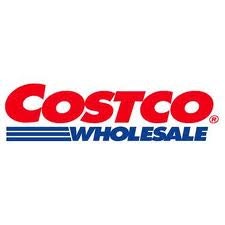Discount retailers make one think of low-priced merchandise and maybe even low-priced stock ideas. Speaking of which, in recent weeks a bulk shipment of quarterly tidings from discounters has been delivered to investors. The old saw about inclement weather has been the prevailing theme; this year, an unseasonably cold spring supposedly put such a big chill on these retailers that many have had to slash their outlooks for the entire year.
Don’t get distracted by the cold weather, or by the market’s recent rally mode. Macroeconomic factors are also in play, and they’re serious. These factors should continue to have major impacts over the course of the year. One stock in the discount group sports a higher valuation, but investors should consider it the best deal of the bunch.
The cold-weather challenge
Given the backdrop of discount retailers cutting outlooks and making excuses, here’s one major anomaly that gives investors a reason to buy, or at the very least hold if it’s already in their portfolios. Costco Wholesale Corporation (NASDAQ:COST) shares hit new highs after it reported its quarterly results last week. It managed to weather the cold-weather challenge relatively unscathed.
Fiscal third-quarter net income increased by 18.9%% to $459 million, or $1.04 per share. Revenue increased 7.9% to $23.55 billion, and same-store sales increased 5%, including the impacts of currency and gas inflation. (Without these factors, same-store sales jumped by 7%.) Sales from Costco’s membership fees increased by 12%, illustrating that consumers are still more than willing to pay for the privilege of loading up on Costco’s bulk merchandise.
Of course, the fact that Costco Wholesale Corporation (NASDAQ:COST) shares trade at such a premium to those of similar retailers has always been a factor that investors have grappled with and often disagreed on. Costco currently trades at 22 times forward earnings. That’s a far cry from Wal-Mart Stores, Inc. (NYSE:WMT) and Target Corporation (NYSE:TGT), both of which trade at 13 times forward earnings. Big Lots (NYSE:BIG) trades even cheaper, at 10 times forward earnings.
Costco Wholesale Corporation (NASDAQ:COST) was able to overcome the supposedly dampening influence of chilly temperatures. The warehouse retailer continued to show itself as a strong bastion against uncertainty.
Compare Costco to Big Lots. Big Lots also reported its quarterly results last week; that retailer slashed its yearly earnings guidance, blaming colder weather that suppressed sales of seasonal items like lawn and gardening equipment in the quarter.
Target Corporation (NYSE:TGT) also used the weather excuse for its 29% decrease in quarterly profit; it cited chilly temperatures and consumers’ financial anxieties for a disappointing quarter. Sales rose an anemic 1%, and same-store sales slid by 0.6%. Target Corporation (NYSE:TGT) also reduced its yearly profit expectations.
Meanwhile, in mid-May Wal-Mart Stores, Inc. (NYSE:WMT) presented investors with a lackluster quarter as well. However, the megadiscounter had the good grace not to blame the weather, but instead pointed to its customers’ financial problems, given high unemployment and the newly reinstated payroll taxes. Its comparable-store sales fell by 1.4%, illustrating the current weakness.
Rethinking “value” versus “premium” pricing
On the face of it, shares of discounters Wal-Mart Stores, Inc. (NYSE:WMT), Big Lots, and Target Corporation (NYSE:TGT) look a lot cheaper than Costco. However, when you put their current woes into the equation, think twice about considering them such great bargains.
Meanwhile, Wal-Mart Stores, Inc. (NYSE:WMT) and Target are even trading near 52-week highs. There’s a problem with this picture.
Investors may be tempted to sell Costco Wholesale Corporation (NASDAQ:COST), or hold off buying it. The retailer is a leader in its space, so it’s no time for long-term shareholders to sell. For those who are put off by its 52-week highs, wait for the moment when we see how the market’s often inefficient; you can often get a better price on some blip in a company’s results.
Pick your discounted discounter stocks carefully. Emphasizing a company with strength like Costco, and either buying it or putting it firmly on your watchlist, is a far better strategy than assuming supposedly cheaper valuations will make you money over the long haul. If they don’t perform, it will turn out they’re not “cheap.” Costco’s got proven performance on its side.
The article Pick Your “Discount” Stocks Carefully originally appeared on Fool.com.
Alyce Lomax has no position in any stocks mentioned. The Motley Fool recommends Costco Wholesale (NASDAQ:COST). The Motley Fool owns shares of Big Lots and Costco Wholesale.
Copyright © 1995 – 2013 The Motley Fool, LLC. All rights reserved. The Motley Fool has a disclosure policy.




